The word “pop” is wonderfully agile. So is the poetry in POP, a debut collection that surprises, delights, and shocks. Simina Banu excels at wordplay with an exceptional range of forms, including visual and concrete poems. Nothing is predictable, and you never know what you’ll find or feel when you turn the page. One thing is certain: the poems are clever, playful, and tragic.
Each part of the book is introduced by two definitions of “pop” and a hand- drawn illustration. Part One, entitled “Food Fight,” opens with pop as a noun, “a beverage consisting of soda water, flavouring, and a sweet syrup,” and pop as a verb, “to make a short, quick, explosive sound.” The quasi-oppositional meanings extend to the poems and their emotional texture as in, for example, “This Sport Makes Me Tired”:
I nap.
You whip out a Sharpie
and draw leafy greens
all over my forehead.
This will help you be a better person,
you whisper.I don’t wake up until I’m in the
blender.
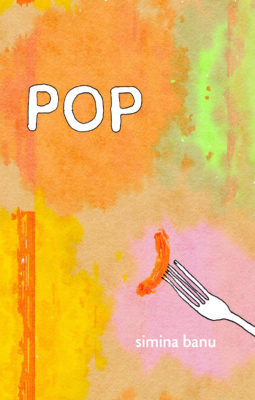
POP
Simina Banu
Coach House Books
$21.95
paper
96pp
9781552454091
The relationship is later compared to a poem. “Crook” confesses, “Our poem is mine now […] I swiped it and ran […] It’s on my side. My poem says it’s all your fault.” Moving from “our poem” to “my poem,” there’s a progression of post-breakup emotions and the craving to feel some sort of closure. “Balloon-Living” memorably concludes with a redemptive couplet: “Three years lift and blow away / as I find my grip in the world again.” (CS)
***
The Loudest Thing, a debut collection by Joshua Levy, is also stunningly good. The book conjures characters, moments, and life’s big questions (love, destiny, existence, and death) with a novelistic eye. Levy’s poems are fearless, precise, and exquisitely crafted.
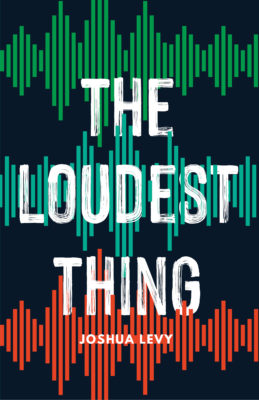
The Loudest Thing
Joshua Levy
Mansfield Press
$17.00
paper
80pp
9781771262361
Such existential questions and the attempts to answer them serve as the book’s scaffolding. “The truth is,” one poem declares, “we are animals pawing at meaning.” Anchored in Levy’s home city of Montreal, the settings shift to Paris, Israel, and, more often, Portugal. The Loudest Thing builds to a celebration of life, love, and poetry itself. “Mapping” reflects on the idea that “Portugal buried / two supermen / in matching tombs, / side by side,” in reference to Vasco da Gama, the sailor, and Luís de Camões, the poet. From their graves, Levy exhumes the essence of poetry:
Back-to-back
life spans—as if
the sailor needed
the poet to map
shores ships
can’t grasp. (CS)
***
In an early poem in The Only Card in a Deck of Knives, Lauren Turner, speaking about a bog burial site, states confidently:
Guide maps to these sick places don’t sell
…………in tourism kiosks, handed over by red shellac nails
and feigned cheer.
This debut collection guides us through some sick places, indeed, with, if not feigned cheer, then at first a self-consciously jaded glamour. The first sections show a poet playing with metaphor, planting painful experience in some louche, uncomfortable landscape scattered with bleeding hearts, lavender, velvet, rickety bar stools, old magicians, and clove cigarettes. The play is self-conscious and bold; the poet is searching for a new language and poetic imagery to express – if not explain – difficult events. She calls on art to rewrite and recreate new languages for experience: to “task the poet with rebreeding the expressions / our tongues have civilized.”
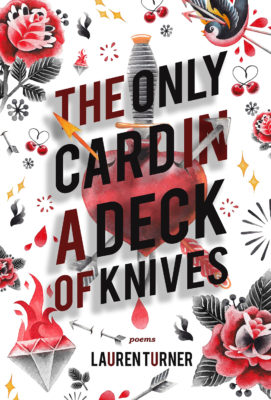
The Only Card in a Deck of Knives
Lauren Turner
Wolsak & Wynn
$18.00
paper
88pp
9781989496091
My illness feels, at times, like another ruthless man with a bone to pick (or organs to tumour) […] If that analogy angers you, it was intended to. Men divided my life by their wills and desires until I was nothing more than inanimate skin.
Later, in the same section, second-guessing herself but also challenging the reader to take a position on this:
Men abused me and now I’m dying, but not of any abuse […] A disease can’t be equated to an abuser. The parallel is imperfect, as is memory and self-narration. Write it down, if you like, that this comparison is ill advised.
This is a book that is unnerving and unsettling in the questions it poses, and deeply satisfying in the skill and discipline with which the poet sustains her interrogations both of those who have exerted their own agency over her history, and of her sense of self. (RM)
***
Norm Sibum has been publishing since the early 1970s in Canada, with at least twenty assorted poetry collections and chapbooks to his name. This is pertinent to Gardens of the Interregnum insofar as the book has the air of a love letter and a farewell address to an often snow-stopped Montreal, to a romantic vision of the past world of poetry. There are references to figures from the Roman Empire – Anacreon, Endymion, Tiberius Caesar, Adonis, Apollo, Dionysus, Lycidas, and Suetonius all feature (there is also a woman who might be Medea but isn’t given a name). The poem referencing the latter – Suetonius, historian to Roman emperors – gives one of the most enjoyably savage poems in the collection, a satirical swipe at the current White House occupant that ends, memorably, with:
……..And the pasquinades that reverence
The small, near porcelain hands.
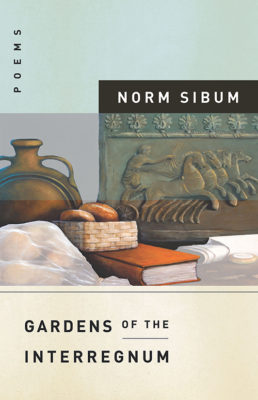
Gardens of the Interregnum
Norm Sibum
Biblioasis
$19.95
paper
72pp
9781771963398
You’d think I’d learned, but here I go again To bother the muse and toss stones at her Black window, disturbing her sweet, delicious dreams
The conflation between poet and persona is too close to call ironic, though maybe some ironical stance cuts through it all – that the poet is aware of his time passing. In “Intimacies,” the reader hears about Mrs Orlow in the “facility”:
She’ll die perplexed, the world not the world Into which she was born […]. (RM)
***
Louise Dupré’s The Haunted Hand enacts, in its relentless excavation of conscience, a “babbling that would like to be confession.” Alternating between prose poems and poems in elliptical, unpunctuated stanzas, she leads the reader through an evacuated psychic space peopled only by the possessed speaker and her addressee, an abject anima mundi and “nurse / for incurable causes,” amid the historical wreckage of a “horizon in flames.” We encounter other aggrieved souls in this abyssal journey (from Virginia Woolf to Nelly Arcan), but Dupré’s deft handling of her subject matter – rejecting evil – shepherds us beyond an elegiac grief too easily buried or repressed to a more radical écriture féminine. She instructs her companion “you” on “how to write I” (one hears, here, the French “Moi, je”) when one no longer believes in the human race, and while “suffering as animal suffers.”
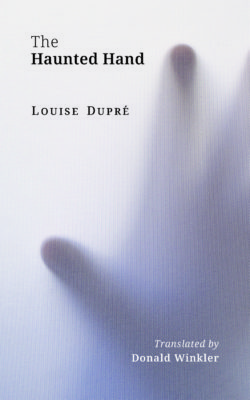
The Haunted Hand
Louise Dupré
Translated by Donald Winkler
Guernica Editions
$20.00
paper
104pp
9781771835107
As the collection is framed by the speaker’s own complicity in world suffering by her decision to euthanize her cat, we must ask ourselves: what cries have we heard, in our lives or dreams, that we ignored? If one believes the origins of the poetic act to be rooted not just in aesthetics, but also moral courage, Dupré bravely leads us to that feared “damned spot,” to quote Lady Macbeth, that we cannot, in the hour of reckoning, erase. (VK) mRb






0 Comments